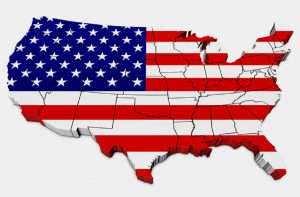The Volokh Conspiracy
Mostly law professors | Sometimes contrarian | Often libertarian | Always independent
My New USA Today Op Ed on Coronavirus and Federalism
The article explains why the coronavirus crisis does not justify weakening constitutional limits on federal government power.

Earlier today, USA Today published my new op ed on federalism and the coronavirus crisis. Here is an excerpt:
President Donald Trump provoked widespread criticism last week when he claimed he had "total" authority to reopen the economy, thereby overriding lockdown orders issued by numerous state governments. Democratic governors, such as Andrew Cuomo of New York, pushed back, arguing that such use of federal power would be "a total abrogation of the Constitution," which leaves such decisions to the states.
The dispute is, perhaps, the latest example of liberal Democrats using constitutional federalism to combat Trump.
More recently, the White House issued guidelines for reopening that are merely advisory. But Trump has not repudiated previous assertions of total authority and could potentially resort to them again if states do not act as he wishes.
At the same time, however, others on the left contend that the coronavirus crisis justifies weakening constitutional constraints on federal power, so as to ensure a cohesive national policy. For example, University of Illinois law school Dean Vikram Amar argues that constraints on federal power to regulate interstate commerce unjustifiably prevent the federal government from ordering a nationwide lockdown, and could also block it from requiring mandatory vaccination of all Americans when and if a vaccine becomes available. Others also argue against constitutional barriers to a comprehensive nationwide lockdown enforced by the federal government and a federal vaccination mandate.
If such arguments prevail, they will set a dangerous precedent. In a time of crisis, it is tempting to assume that we need to concentrate power as much as possible. But centralization can often make things worse rather than better. Moreover, consolidations of power that arise during crises often continue long afterwards.
I previously wrote about federalism and the coronavirus crisis here.


Show Comments (8)